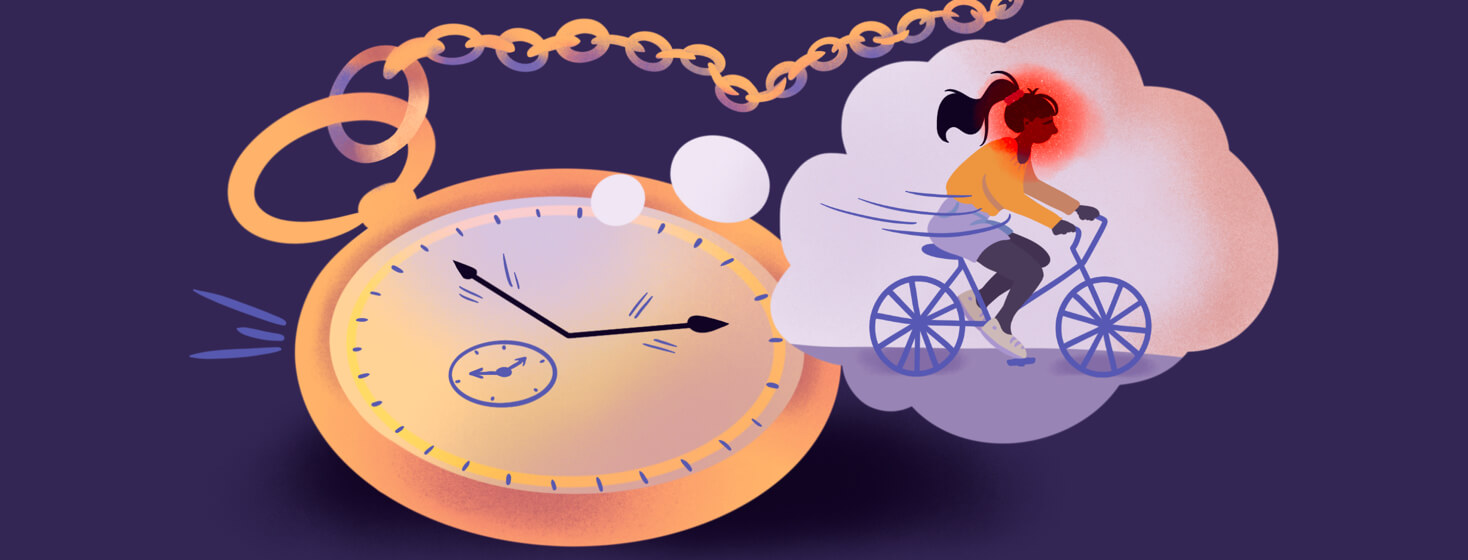How A 24-Hour Cancellation Policy Harms Chronic Pain Patients
We’ve all done it. You forget about that self-care appointment or double book yourself and forget to cancel. These instances are frustrating for businesses, so they’ve adopted a 24-hour cancellation policy that requires a fee for no-shows. I understand these companies rely on filling appointment spots and receiving tips for good services. They lose money when you don’t show up or cancel in time.
Canceling due to chronic pain
What these requirements fail to consider is chronic pain. When your illness is invisible such as cluster headaches or migraine disease, you’re seen as a flake. Chronic pain patients are often given no exemption for missing an appointment because you should know exactly when your pain will flare up.
My monthly massages
I used to have monthly massages, and my insurance covered 60% of the cost. It did nothing to improve my cluster headaches, but I did enjoy a good massage. The massage therapist and I talked all about my headache disorder, and he was fascinated by the nature of cluster headaches.
Scheduling an appointment around a cycle
I went into a cycle in the spring and scheduled my massage for what I thought would be a pain-free time. My attacks typically come on around 8 am, 2 pm, 6 pm, and 8 pm. (Cluster headache attacks are short-lived but occur several times a day and come on quickly.)
A cluster headache attack
As I pulled into the parking garage, I felt the shadow creeping up my neck at the base of my skull, but I chose denial. No way my attack was coming on early. I chugged a Red Bull (a treatment hack for cluster headaches) anyway and went into the salon. We were just a few minutes into the massage when my right eye started streaming with tears. My right nostril became runny. The right half of my face twitched and went lax.
A witness to the pain
The massage therapist asked if I was okay, right as the pain spiked up to 10. I said I was having an attack and needed an injection before leaving. He was understanding, but he was also worried because of the amount of pain he was witnessing. He thought he knew what cluster headaches were, but it scared him now that he saw one.
The massage therapist cancelled his work day
I rushed to the bathroom to give myself the sumatriptan shot. When I was well enough to leave the room, I saw the massage therapist leaving the salon. I’m not sure if he thought he caused me pain or was shocked by what he witnessed, but he canceled the rest of his appointments to go home.
The attack's timing was off
If my attack had been in full swing when I parked, I never would have walked into that business. No one needs to see that. I don’t need to be put on display, and I don’t need to prove to someone that I was ill. However, the business now understood the reason my insurance covered their services.
If I’d needed to cancel, they could have rescheduled me, charged me, or fired me as a client. I didn’t get the massage or a fee. However, I did potentially traumatize someone enough to end their workday early.
Missed doctor's visits
When it came to my primary care physician in 2012, it was entirely different when I missed two appointments. During the first, I was able to call and tell them I was still in line at the pharmacy and couldn’t risk not getting my injections filled. The second time was because a cluster headache attack came on ten minutes before I needed to leave. I couldn’t drive myself to the appointment safely, nor could I call until after the cluster headache passed.
Fired as a patient
I was fired as a patient. It still baffles me that my missed appointments were due to the same condition I was seeing them to treat, yet no compassion was shown by the reception staff, nursing line, or management.
No show appointment policies
Some businesses have a limit for what they consider “no-show” appointments. These policies are in place for a reason, which is understandable because they need to put food on their family’s table. Of course, they will make exceptions if you are in a car accident, hospital, or a loved one dies — though that is not the case for all businesses.
A no-show fee
A friend of mine was harassed online by company employees for leaving a review. She was charged a no-show fee because she was in the hospital receiving IV treatment for a week-long status migraine.
A gray area for chronic pain
Patients in chronic pain are in a gray area when it comes to these policies. A cluster headache patient may feel fine the morning of their appointment but experience an attack just before they need to leave. A migraine patient may be struggling with an attack the night before but hope it will be better by their appointment time the next day.
Self care in a treatment plan
People with invisible illnesses must work harder and be louder just to be believed. Massages, acupuncture, and other self-care are not a luxury, and it’s part of the treatment plan covering your pain and mental health. We make these appointments to improve our quality of life, but sometimes the pain stops us from taking that step.
Invisible illnesses and self care treatments
Businesses that specialize in self-care treat people with chronic pain regularly. Yet, often fail to understand the actual circumstances of living with a chronic illness, especially if it’s one they can’t see. If they did see you in pain, watch you get an IV treatment or injection, their tune (and their policy) might change.

Join the conversation